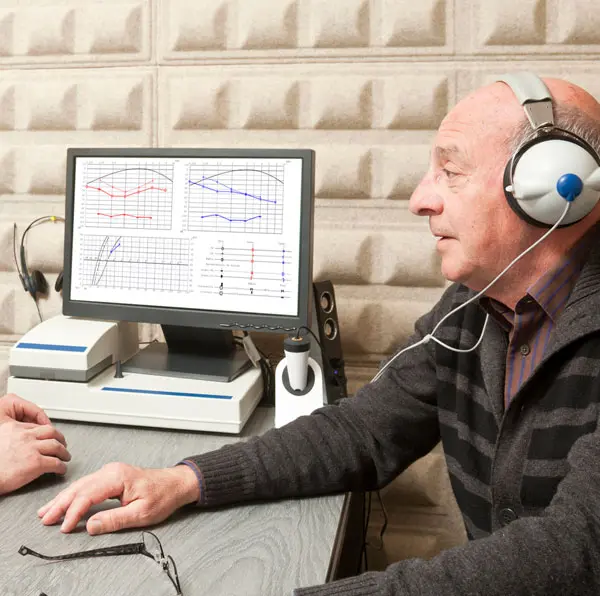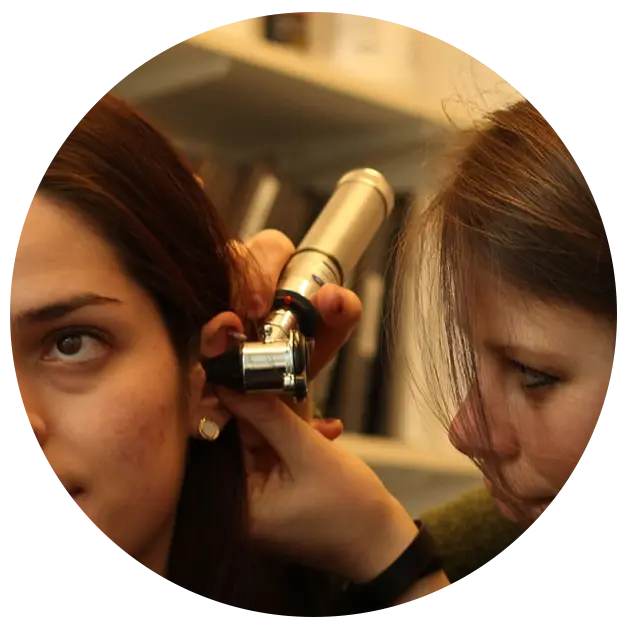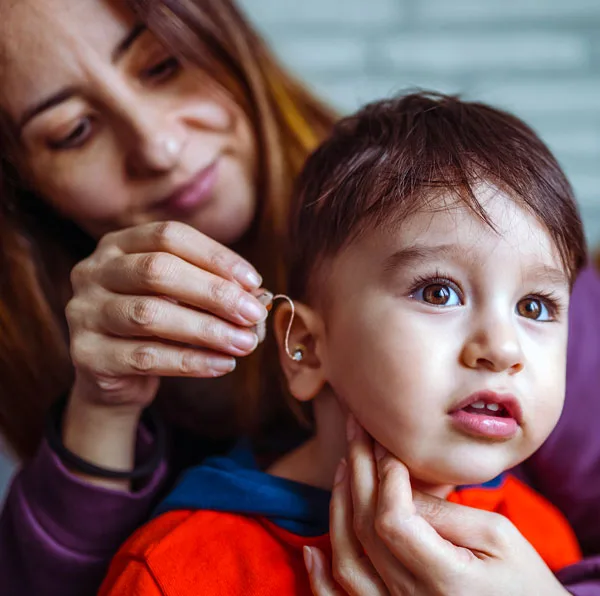
communication beyond BOUndaries

We offer diagnostic hearing evaluations and more.
We offer help with a broad range of speech-language issues.

The first step in determining your hearing ability is with a diagnostic hearing evaluation. If you have hearing loss, the evaluation will detail the extent, type, and specifics of your loss.
The diagnostic hearing evaluation consists of a variety of tests to determine the unique aspects of your hearing, as well as the level at which you can detect and understand speech. We evaluate a wide scope of patients ranging from pediatrics to seniors.
We offer the below services.
Diagnostic hearing evaluations identify hearing loss and give your audiologist important information to help determine the best course of action for treatment. Some types of hearing loss can be treated medically or surgically, so it’s important that these types of hearing losses be ruled out before hearing aids or other treatments are considered.
The diagnostic hearing evaluation consists of a variety of tests to determine the unique aspects of your hearing loss, as well as the level at which you can detect and understand speech.
Developmentally appropriate diagnostic audiologic evaluations for children and infants/toddlers are customized to the child’s individual needs, with developmentally-appropriate behavioral and objective measures.
Aural Rehabilitation (AR) is for individuals with hearing loss, including those who wear hearing aids and/or have cochlear implants.
AR services include helping individuals adjust to hearing loss, learn communication strategies to manage conversations, learn speechreading skills, practice self-advocacy skills, get support from others, and maximize and explore the use of assistive listening devices.
The Northeastern University Speech-Language-Hearing Center is one of the few facilities in Massachusetts to offer central auditory processing evaluations, or CAP assessments. We specialize in determining if students have CAPD. We provide schools, the community, and families with appropriate recommendations to best accommodate the student’s listening needs.
Children need to be at least seven years old to have a CAP Evaluation.
In children between 3 and 5 years of age, hearing screenings can help identify hearing loss that may affect development, interfere with future performance in school, or indicate a medical condition (e.g., middle or inner ear disorder). Northeastern provides hearing community-based hearing screenings to various Head Start and preschool based programs. Please contact us at 617-373-2492 for further information.
Musicians need to protect their hearing, but they also need to be able to hear their own music clearly, as well as hear other musicians’ music and voices while performing.
| Musical Example | Typical Loudness Range (in Decibels) | Recommended Exposure Time Range |
|---|---|---|
| Piano | 60 dB to 95 dB | 47 minutes to 25+ hours |
| Chamber music in small auditorium | 75 dB to 85 dB | 8 hours to 25+ hours |
| Violin | 84 dB to 103 dB | 7 minutes to 10 hours 5 minutes |
| Cello | 82 dB to 92dB | 1 hours 35 minutes to 16 hours |
| Oboe | 90dB to 94dB | 1 hour to 2 hours 31 minutes |
| Flute | 85dB to 111dB | 1 minute to 8 hours |
| Piccolo | 95 dB to 112dB | 1 minute to 47 minutes |
| Clarinet | 92 dB to 103dB | 7 minutes to 1 hour 35 minutes |
| French Horn | 90dB to 106dB | 3 minutes to 2 hours 31 minutes |
| Trombone | 85 dB to 114 dB | less than 1 minute to 8 hours |
| Timpani & bass drum rolls | 106 dB | 3 minutes |
| Symphonic music peak | up to 137 dB | less than 1 minute |
| Amplified rock music, 4 to 6 feet away | 120dB to 150dB | less than 1 minute |
Designed for musicians who perform for large audiences, in-ear musician monitors are the current standard in musician technology. They allow the musician to clearly hear the music they are making as the audience would hear it while still protecting the musician’s ears from extremely loud amplification systems and audiences.
There are many steps that are part of a hearing aid evaluation. If you suspect that you might need a hearing aid, you will first need to have a hearing evaluation. The audiologist will review the type of hearing loss as well as how it is affecting a patient’s life and recommend the “best fit” with the patient’s medical condition, lifestyle, and budget from a variety of hearing aid models.
When the hearing aid arrives, a patient will return to work with the audiologist to fine tune the incoming sounds using a special computer program.
Significant technological advances have been made to improve digital amplification. Many of the new digital aids can be easily adjusted for background and environmental noises, improving patient satisfaction.
We carry full lines of Phonak, Oticon, Widex, Starkey and Siemens hearing aids.



Appointment times vary. Please call the Speech-Language and Hearing Center at 617- 373-2492 or email Claudia Lywood at [email protected] to schedule an appointment.
— American Academy of Audiology